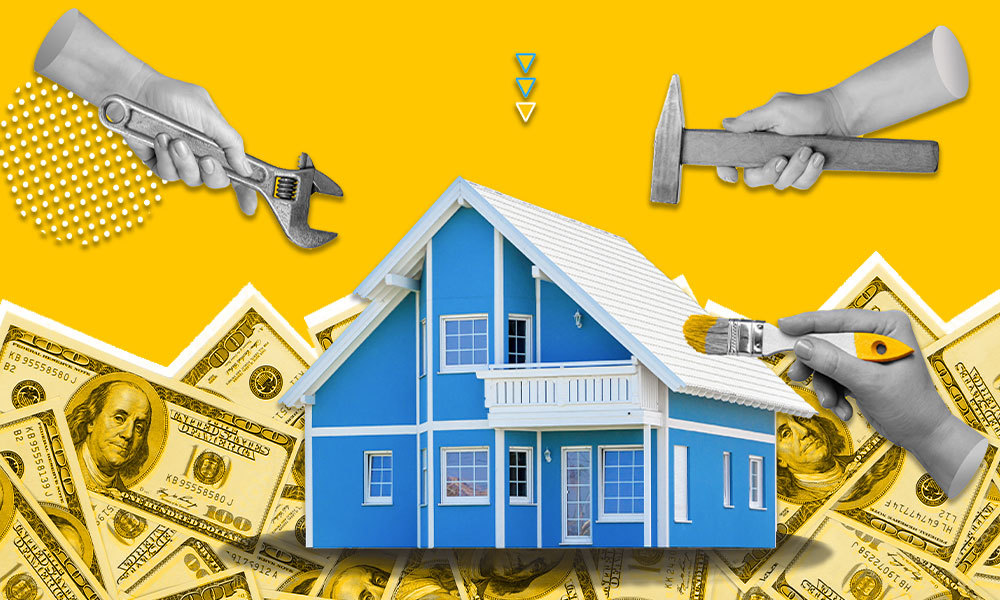 Contact
About Us
Articles
Home
Contact
About Us
Articles
Home

Retirement is often visualized as a period of relaxation and freedom. However, it comes with its own set of responsibilities, particularly in terms of financial management. For many retirees, a significant expense over the years is home maintenance. As we age, so do our homes, demanding regular upkeep, repairs and possibly modifications. Proper budgeting for these expenses is crucial to ensure a comfortable and worry-free retirement.
The first step in budgeting is understanding what kind of maintenance your home will require. Older homes might need more frequent repairs, while newer ones might only require basic maintenance. Consider the age of your home, the condition of major components like the roof, plumbing and electrical systems, and plan accordingly.

Generally, financial experts suggest setting aside 1% to 4% of your home's value each year for maintenance and repairs. For example, if your home is valued at $250,000, you should try to set aside $2,500 to $10,000 annually. Adjust this figure based on the age and condition of your home. Here are some saving strategies to consider:
Budgeting for home maintenance in retirement requires foresight, planning and an understanding of your home and financial situation. By preparing adequately, you can ensure that your retirement home remains safe, comfortable and a source of joy rather than a financial burden. Remember, a well-maintained home not only provides a better living experience but can also contribute to preserving or even increasing your property's value over time.
Retirement brings a transition into a phase where managing finances becomes crucial, and one of the regular expenses that can be optimized is utility bills. For retirees, reducing these costs can lead to significant savings and a more comfortable retirement budget. There are practical ways for retirees to decrease their monthly utility bills, ensuring more of their hard-earned retirement funds can be used for enjoying life rather than just covering the basics.

Managing utility bills in retirement doesn’t have to be a struggle. By implementing these strategies, retirees can enjoy a comfortable home environment while keeping costs under control. It’s about being smart with energy usage and making small changes that can lead to big savings. Remember, each step not only helps in reducing bills but also contributes to a more sustainable, environmentally friendly way of living.
Home expenses can really add up, but there are lots of ways that you can use technology to save money. Here are some additional tips:

The decision to downsize your home is often as much an emotional decision as it is a practical one. Many homeowners consider downsizing for various reasons – financial benefits, reduced maintenance, lifestyle changes or preparing for retirement. It’s important to explore the various aspects you should consider to determine if downsizing your home is the right move for you.
Downsizing can potentially lead to significant cost savings. A smaller home generally means lower mortgage payments, property taxes and insurance costs. For those nearing or in retirement, reducing these expenses can be a critical factor in stretching retirement savings.
A smaller space typically costs less to heat, cool and light, leading to lower monthly utility bills. Larger homes require more time, effort and money to maintain. Downsizing can reduce these burdens, offering both financial relief and a simpler lifestyle.
Also, if you have substantial equity in your current home, selling it to move into a smaller space can free up cash for retirement, travel or other interests and needs.
Then, there are lifestyle and emotional considerations to keep in mind. A smaller home can mean a simpler way of life with less cleaning and maintenance. This change often appeals to those looking to spend less time on home upkeep and more on hobbies, travel or family.
As mobility and health needs change, a smaller, more manageable home might be more practical. Features like fewer stairs, a more compact layout or accessibility modifications can be crucial for aging in place. Downsizing might also mean moving to a new location that’s closer to family, offers better amenities or has a more vibrant community of peers. However, leaving a home full of memories can be difficult. The emotional attachment to a family home shouldn't be underestimated.
It's also important to consider how you use your current space. Will a smaller home meet your needs when it comes to hobbies, hosting guests or having room for grandchildren? Plus, smaller homes have a smaller environmental footprint. If sustainability is a priority for you, downsizing can be a step toward a more eco-friendly lifestyle. But moving to a smaller space requires adjustment. This transition can involve decluttering and getting rid of items that won’t fit in the new home.
First, start off by assessing your needs. Clearly define what you want in your new home. Consider location, size, community and features that match your current and future lifestyle needs.
You’ll also need to consult with a financial professional to understand how downsizing will affect your financial situation, particularly if you're retired or planning for retirement.
Meanwhile, another task is to explore housing options. Look into different types of homes, such as condominiums, townhouses, smaller single-family homes or retirement communities. Each has its pros and cons, depending on your lifestyle and mobility needs.
If you decide to downsize, plan your move methodically. This involves sorting through belongings, deciding what to keep, sell or donate – and preparing for the emotional journey of leaving your old home.
Remember, downsizing isn't just about moving into a smaller space; it's about re-evaluating your lifestyle and needs. It offers both financial and lifestyle benefits but also comes with emotional and practical challenges. Weighing these factors carefully will help you make a decision that aligns with your long-term goals, financial situation and personal well-being. As with any significant life change, thoughtful consideration and careful planning are key to ensuring that if you do decide to downsize, the move is as rewarding and stress-free as possible.
Taking care of your home in retirement is essential for maintaining a comfortable and worry-free lifestyle. It is important to plan ahead and budget for maintenance and repairs, as older homes may require more frequent upkeep than newer ones. Be prepared for unexpected expenses by setting aside an emergency fund. Consider doing some maintenance tasks yourself, such as changing air filters or cleaning gutters, but hire a professional for more complex tasks, such as electrical work or plumbing repairs.
You can take advantage of tax exemptions and assistance programs that may be available, especially for seniors. Consider downsizing your home if you have a large one, as this can reduce your maintenance costs. Planning for home maintenance in retirement can be daunting, but it is an investment in your future that can help ensure that your retirement home remains safe, comfortable and affordable for years to come.
Alliance America is an insurance and financial services company dedicated to the art of personal financial planning. Our financial professionals can assist you in maximizing your retirement resources and achieving your future goals. We have access to an array of products and services, all focused on helping you enjoy the retirement lifestyle you want and deserve. You can request a no-cost, no-obligation consultation by calling (833) 219-6884 today.


